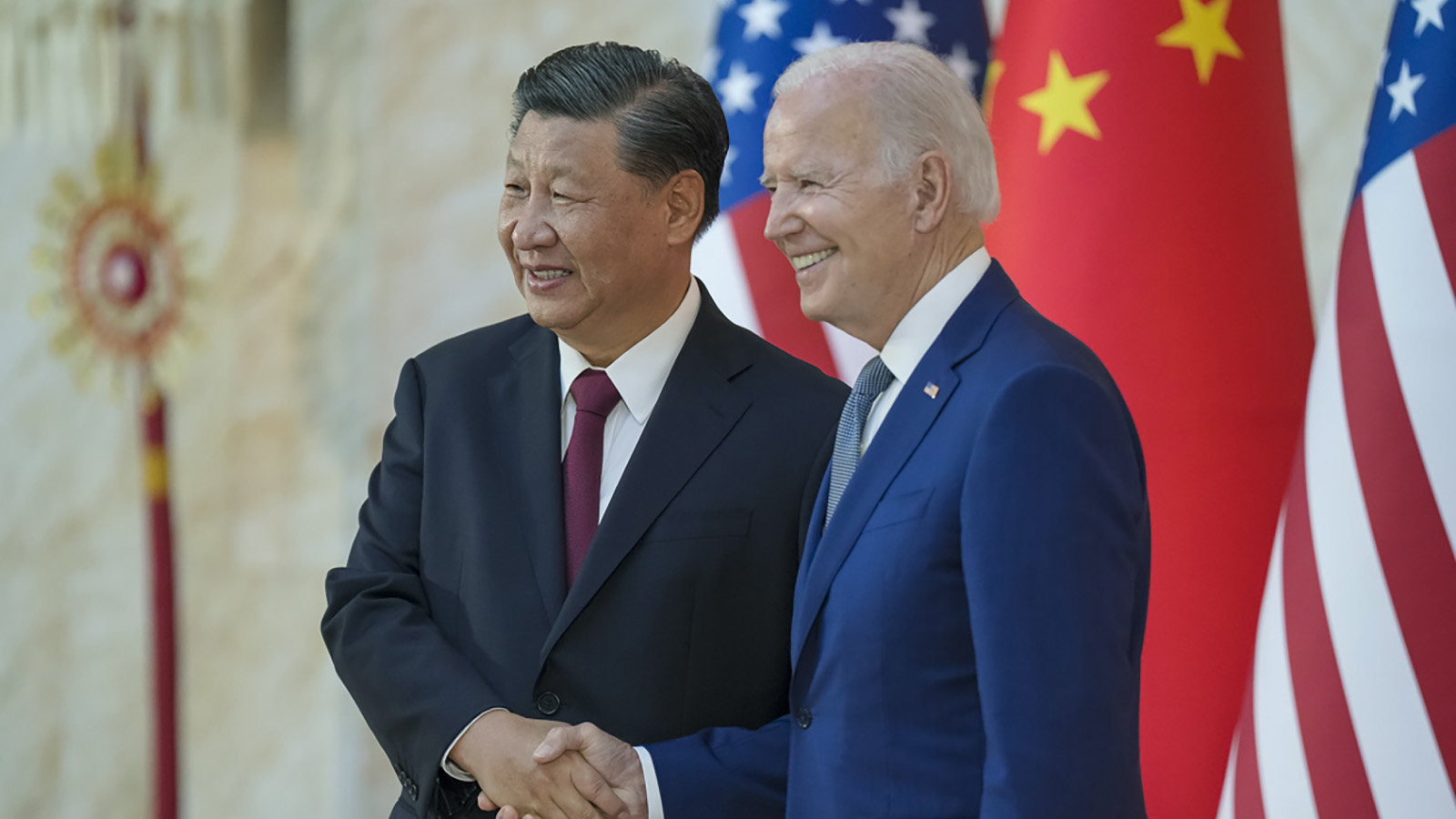Su Ziyun, associate researcher and director of the Taiwan Institute of National Defense Strategy and Resources, believes that at this meeting, the two sides used “one China and each table” to “break the issue”. ) background, each other so-called red lines. And Taiwan has never been a problem.
He analyzed to Voice of Hope: “This is the CCP’s strategic narrative. The CCP has written a diplomatic story. It tells that the one-China principle is different from the one-China policy of other countries. Biden’s part is a new clarity. The United States His red line is not to use force to change the status quo; he confirmed it again in person during the meeting.”
The outside world has noticed that the press release issued by the United States and China after the meeting shows that the two countries’ expressions on the talks are the same as the previous calls between Xi and Xi, and there is a big difference. The episode on the sidelines also revealed that while trying to maintain peace, the two sides are still undercurrents.
Veteran current commentator Tang Jingyuan analyzed to Voice of Hope that the Xi-Xi meeting is just a phased relaxation against the background of intensified competition and confrontation in US-China relations. And the easing between the two sides is limited to reaching a certain consensus on third-party topics such as the Russian-Ukrainian nuclear crisis and climate change. On the focus of the most critical confrontation between the United States and China, there are still different opinions.
“Including the Taiwan Strait crisis, technological decoupling, trade competition, and human rights, we have not seen any substantive mutual concessions or communication. Therefore, the general trend of US-China competition and confrontation will not change. But it will be carried out through the summit Periodic cooling and easing may become a normalized phenomenon in the future.”
After the meeting, Biden said, “We are committed to maintaining peace and stability across the Taiwan Strait.” In his view, the CCP “has no immediate attempt to invade Taiwan.”
Tang Jingyuan pointed out that Xi Jinping has no intention of invading Taiwan in the short term. This does not conflict with Xi Jinping’s plan to annex Taiwan during his tenure. “The CCP has no intention of using force for the time being. The reason is not that it still wants to coexist peacefully with the United States or maintain the status quo of peace in the Taiwan Strait. It is just that its military capabilities and war reserves have not met the requirements for war.”
Xi Jinping emphasized at the Xi Jinping meeting that China will continue to reform and open up, and that Sino-US relations should not be “you lose, I win.” He also criticized the practice of “decoupling and breaking the chain” of China.
Su Ziyun said that he called Biden’s recent actions “the Orient Express of diplomacy.” After the U.S. mid-term elections came to an end, he immediately flew east from Washington to Egypt to participate in the climate summit to consolidate the influence of the United States; then he went to Phnom Penh, Cambodia to attend the ASEAN leaders’ meeting, and agreed to provide assistance with some infrastructure and resist the CCP. bullying at sea; and then to Bali to attend the G20 meeting.
He analyzed that in the future, the United States and China will embark on economic competition. The CCP has reached the 80th rule that is in line with international political theory. When the second-largest country reaches 80% of the strength of the first-ranked country, it will want to seize leadership. Of course, Western countries headed by the United States are unlikely to allow the threat of the CCP to continue to grow.
“So the containment of technology will still be carried out after all. This is very critical, because it can delay the economic development of the CCP’s authoritarian government, as well as its military expansion. So in the future, between the United States and China, except for sensitive technologies, semiconductors, etc. In addition to this type of non-communication, other economic activities will gradually increase; but there is a premise that it must comply with Biden’s so-called fair trade.”
At the Xi Jinping meeting, Xi Jinping promised to restore the regular communication between the top staff of the United States and China. After the G20 meeting, Biden said, “I don’t think China has much respect for Russia or Putin, and I don’t think China and Russia have formed a special alliance. In fact, the Chinese authorities keep a distance from Putin.” Xi Jinping has not disputed Biden’s claims.
Tang Jingyuan emphasized that Xi Jinping’s softening of his superficial language is only an expedient measure after the intensification of domestic and foreign conflicts. “Actually, Xi Jinping’s speech hints everywhere, expressing the intention that the United States and China must be on equal footing.”
“At the same time, he continues to emphasize that the establishment of an international order with the United Nations at its core is in itself subverting the current established international order. So the CCP’s strategic intentions have not changed, it has only slightly restrained its edge. .”
